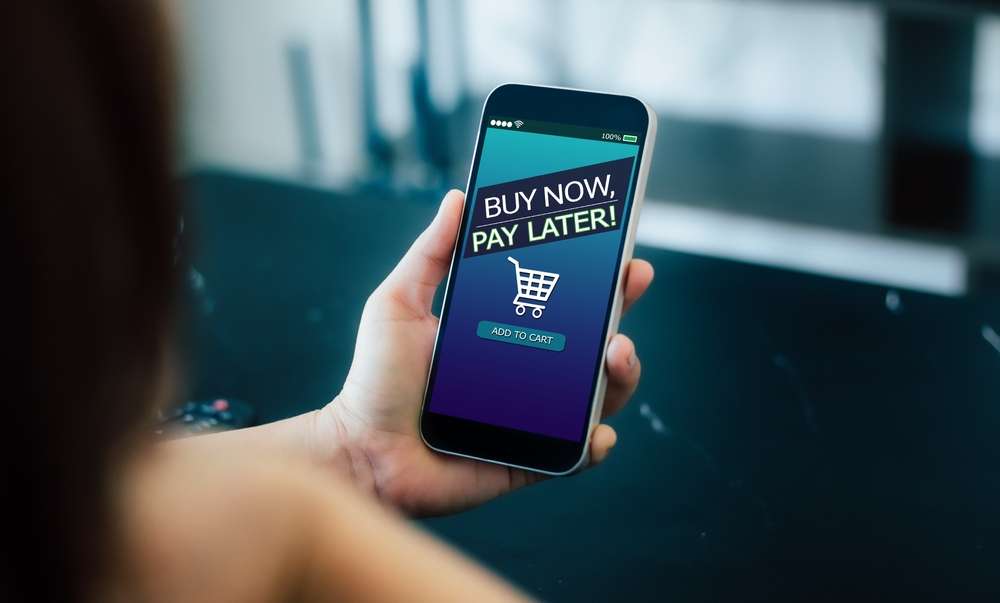Seize the Latest Smartphones with Convenient Buy Now, Pay Later Options Without Credit Checks
Buy Now, Pay Later services have introduced alternative financing methods for smartphone purchases, offering installment payment structures that differ from traditional credit arrangements. These programs vary significantly in their terms, eligibility requirements, and total costs. Understanding how these financing options function, their potential benefits and limitations, and the factors that determine approval can help consumers make informed decisions aligned with their financial circumstances.

The landscape of smartphone purchasing has expanded beyond outright purchases and traditional carrier contracts. Buy Now, Pay Later financing has emerged as an alternative payment method, allowing consumers to spread device costs across multiple installments. These arrangements differ from conventional credit in their approval processes, payment structures, and reporting practices. However, the suitability of these options depends heavily on individual financial situations, provider terms, and the total cost of ownership.
Understanding Flexible Smartphone Payments
Flexible smartphone payments refer to installment arrangements that allow consumers to pay for devices over time rather than in a single transaction. These programs typically involve partnerships between retailers, device manufacturers, and financing companies. Payment structures vary widely: some divide costs into four equal payments over six weeks, while others extend terms to 12, 24, or even 36 months. The application process generally requires basic personal information, income verification methods, and banking details. Approval criteria differ significantly between providers, with some conducting traditional credit checks while others use alternative assessment methods. Consumers should note that approval is not guaranteed and depends on meeting specific provider requirements that may include minimum income thresholds, banking history, or other financial indicators.
What No Credit Check Financing Actually Means
The term no credit check phones can be misleading, as it encompasses various practices. Some providers conduct soft credit inquiries that do not affect credit scores but still review credit history. Others use alternative data sources such as bank account activity, employment verification, or income documentation instead of traditional credit bureau reports. A smaller subset truly requires no credit evaluation, instead focusing entirely on current financial capacity. Each approach has different implications for who may qualify. Consumers with limited credit history, past credit challenges, or those avoiding hard inquiries may find certain options more accessible than traditional financing. However, no credit check does not mean automatic approval or that financial qualifications are absent. Providers still assess ability to repay through various means, and eligibility requirements vary substantially between companies.
Evaluating Budget-Friendly Smartphone Plans
Whether a smartphone payment plan fits within a budget depends on individual financial circumstances rather than marketing descriptions. Plans marketed as budget-friendly typically feature lower monthly payments achieved through extended payment terms or bundling with service contracts. The actual affordability for any consumer depends on their income, existing expenses, and financial obligations. A payment of $30 monthly may be manageable for some households but strain others. Additionally, the total cost over the payment period may exceed the device’s retail price when interest, fees, or required add-ons are included. Consumers should calculate the complete cost including any mandatory insurance, activation fees, or service plan requirements. Comparing this total against the device’s current market value and against alternative purchasing methods provides clearer insight into whether a particular arrangement aligns with personal budget constraints.
How Instant Phone Financing Works
Instant phone financing describes digital application processes designed to provide rapid approval decisions, typically within minutes. These systems use automated algorithms to evaluate applicant information against predetermined criteria. The speed comes from reduced documentation requirements and digital verification methods. However, instant does not guarantee approval, nor does it mean all applicants receive the same terms. Approval decisions depend on meeting specific provider criteria, which may include income verification, bank account standing, employment status, or credit factors depending on the provider. Some applicants receive immediate approval, others immediate denial, and some require additional verification that extends the process. The terms offered, including payment schedules and interest rates, often vary based on the provider’s assessment of the applicant’s financial profile.
Examining Zero Interest Phone Deals
Zero interest phone deals advertise payment plans without finance charges, but the complete cost structure requires careful examination. Legitimate zero-interest arrangements divide the retail price into equal payments with no added interest when payments are made according to schedule. However, these promotions often include conditions that can significantly impact total costs. Late payment fees can be substantial, and some agreements include deferred interest provisions where missed payments trigger retroactive interest charges on the entire purchase amount. Certain offers require maintaining specific service plans, purchasing device insurance, or meeting other conditions that add to monthly costs. Promotional periods may be limited, with interest applying to remaining balances afterward. Consumers should review all terms, calculate total costs including mandatory add-ons, and understand penalty structures before committing to any financing arrangement.
Comparing BNPL Providers for Smartphone Purchases
Different providers offer varying terms, approval processes, and cost structures. The following comparison presents examples of providers in this space:
| Provider | Payment Terms | Interest Structure | Approval Process |
|---|---|---|---|
| Affirm | 3-36 months | 0-30% APR varies by creditworthiness | Soft credit check initially, terms based on assessment |
| Klarna | 4 payments or 6-36 months | 0% for short-term; varies for extended | Soft inquiry for short-term, assessment varies |
| PayPal Pay in 4 | 4 payments over 6 weeks | 0% interest | Soft credit check, not all applicants approved |
| Afterpay | 4 payments over 6 weeks | 0% interest, late fees apply | Assessment based on multiple factors |
| Progressive Leasing | 12 months lease-to-own | Total cost typically exceeds retail | Income-based approval, different from traditional financing |
Prices, rates, or cost estimates mentioned in this article are based on the latest available information but may change over time. Independent research is advised before making financial decisions.
Making Informed Financing Decisions
Selecting smartphone financing requires evaluating personal financial circumstances against available options. Consumers should calculate whether proposed monthly payments fit comfortably within their budget after essential expenses. Comparing total costs across different providers and payment methods reveals which option delivers actual value. This includes adding all fees, required purchases, and potential penalties to determine true cost. Reading complete terms and conditions, though time-consuming, prevents unexpected obligations or charges. Considering the device’s expected lifespan relative to the payment term helps ensure the phone remains functional throughout the commitment. Understanding whether payments are reported to credit bureaus affects long-term financial planning. Those considering these options should recognize that approval depends on meeting provider-specific criteria, terms vary based on individual assessments, and what works for one person’s budget may not suit another’s financial situation.
Buy Now, Pay Later options represent one of several methods for acquiring smartphones, each with distinct characteristics, costs, and qualification requirements. These financing arrangements are not universally suitable or affordable for all consumers. Careful evaluation of terms, realistic assessment of personal finances, and comparison of total costs across alternatives help determine whether a particular financing option aligns with individual circumstances and financial capacity.




